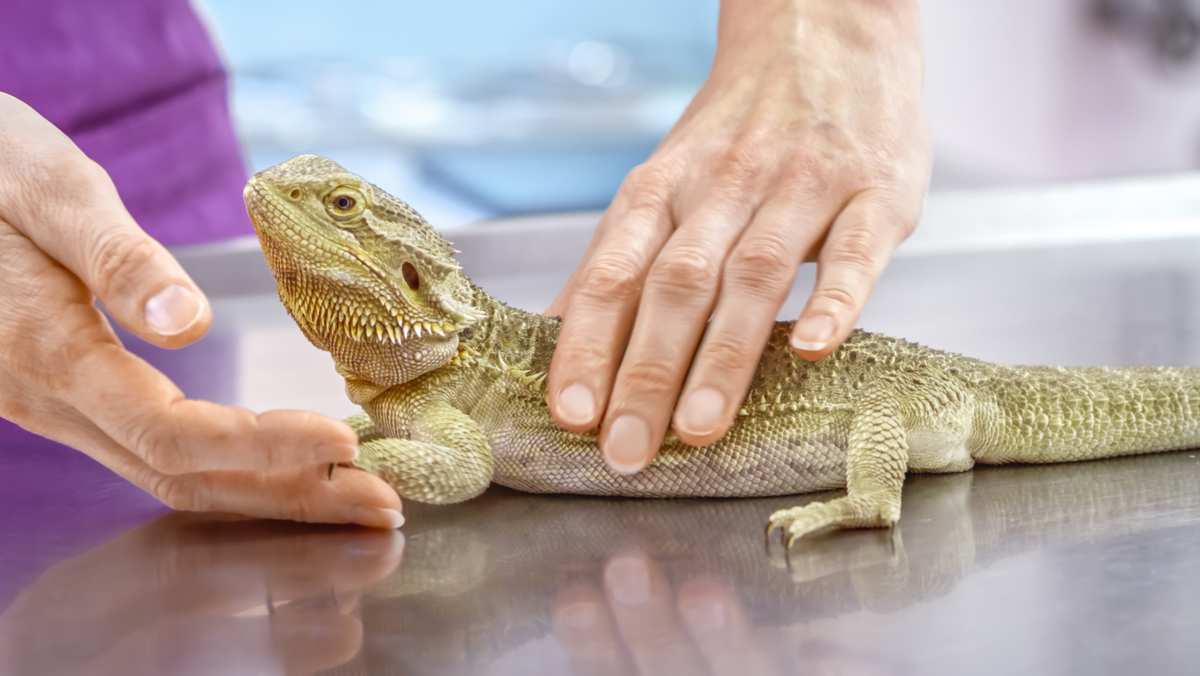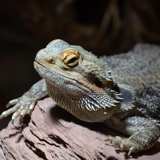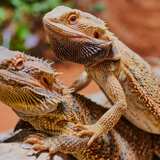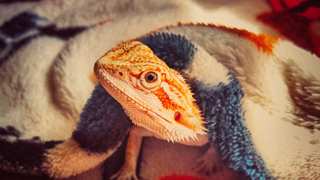Normal Bearded Dragon Behavior
Healthy bearded dragons will go through a few cycles each year where he or she may seem ill, but in reality they are perfectly healthy. Please consider the following stages if you suspect your beardie is ill.
Bearded Dragon Brumation
Brumation is a naturally occurring hibernation cycle that bearded dragons go through. Bearded dragons will go through a brumation stage in the winter or fall in response to the change in lighting or temperatures. Some bearded dragon owners will try to force or prevent brumation by manually adjusting the temperatures and lighting of their dragons cage, however it is recommended to let your bearded dragon do what comes naturally.
Each bearded dragon is different during the brumation period. Some dragons will take very long naps off and on for the entire cycle, while other dragons will sleep without waking for the entire cycle. The brumation period also varies based on the dragon. Some bearded dragons don't go through brumation at all, others will only have a brumation period for a week, and some will be in brumation for several months.
During the brumation cycle your bearded dragon will become less active and will sleep for much longer periods of time. Your bearded dragon may also have a decreased appetite or stop eating all together. This is natural and your bearded dragon should not lose any weight even without eating for the duration of the brumation period if he/she is healthy. Normally bearded dragons will only lose weight during brumation if they have parasites, so it's generally a good idea to have your dragon tested for parasites when you suspect they are about to enter a brumation cycle. Some owners will weigh their dragon before and during the brumation period to make sure they do not lose weight, but this is unnecessary unless you suspect your beardie has parasites.
Some owners will turn the lights off during brumation and will stop feeding their bearded dragon until the brumation cycle ends. However, since every bearded dragon is different it's recommended to keep the cage lights on for the same cycle throughout the brumation period and to continue feeding the bearded dragon. Many bearded dragons will wake up occasionally during the brumation period and will eat and/or bask in their basking light. To do this, simply keep a bit of fresh food in their cage and monitor if it's been eaten or not.
Many owners will wake their bearded dragon for bathing and to make sure they eat. However, doing this can cause the brumation cycle to increase. For example, waking your bearded dragon every week can extend a 2 month brumation cycle to 3+ months as opposed to leaving your beardie undisturbed.
Bearded Dragon Shedding
Bearded dragons are reptiles and so they will shed their skin. Baby and juvenile bearded dragons will frequently shed their skin in response to them growing, however adult bearded dragons may only shed their skin once or twice per year.
Before a bearded dragon will shed you will notice their color will become more dull and their eyes will appear to be puffed out much further than normal. These things are normal and are signs of a healthy shed.
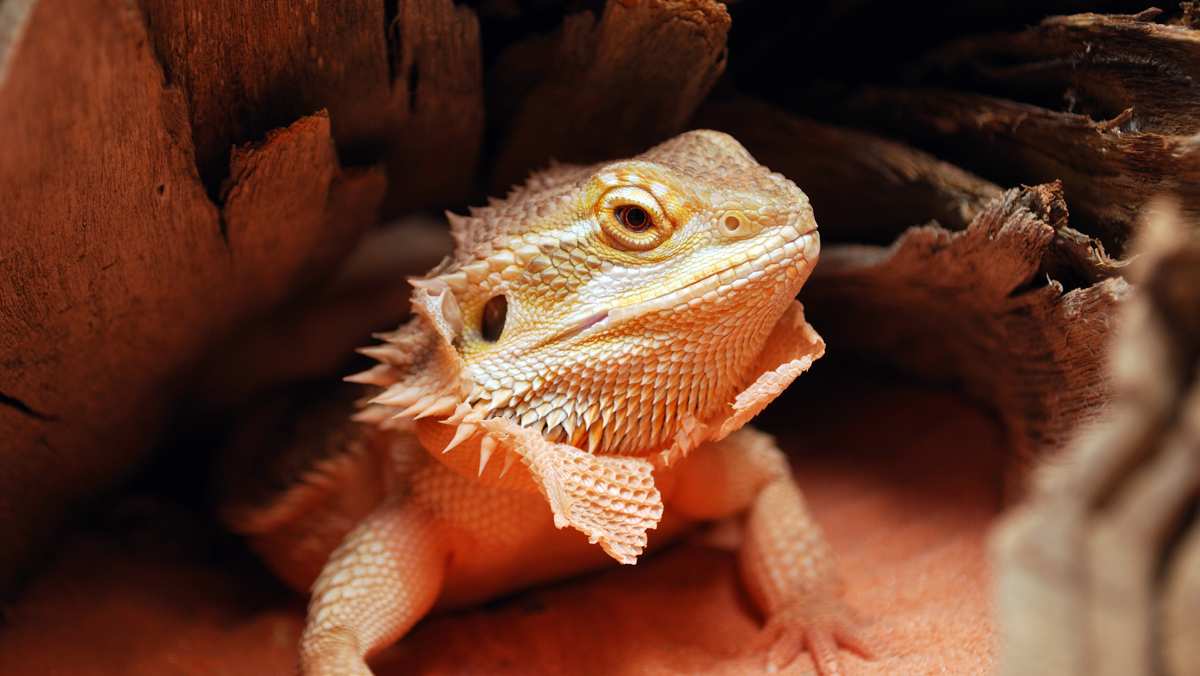
During the shed, you will want to make sure that your bearded dragon stays clean and hydrated by bathing him/her with warm water. It is also recommended to use a spray bottle to occasionally mist your bearded dragon's skin to keep it hydrated during the shedding cycle. This is because in the wild the high humidity will help keep the skin moistened to make the shedding faster, however since their tank is low in humidity it can make it more difficult to shed without the use of a spray bottle.
Do not pull off your beardies shedded skin unless it is ready to come off. Any skin that is ready to come off should be literally falling off their body. If you are helping your bearded dragon shed by pulling off his/her skin, the skin you pull off should come off without any resistance and should not be damp or wet. If the skin is damp or wet and has resistance when you pull at it, it's not ready to come off and you can damage their new scales by removing it.
You will need to monitor the shedding at the tip of the tail and on their toes. These are some problem areas where the skin does not come off easily, however if the skin is left on it can tighten and restrict blood flow to these areas which can kill their skin tissue. Therefore it is recommended to help your beardie shed in these areas. Make sure they stay damp and gently work the skin over a couple of days to help promote shedding.

